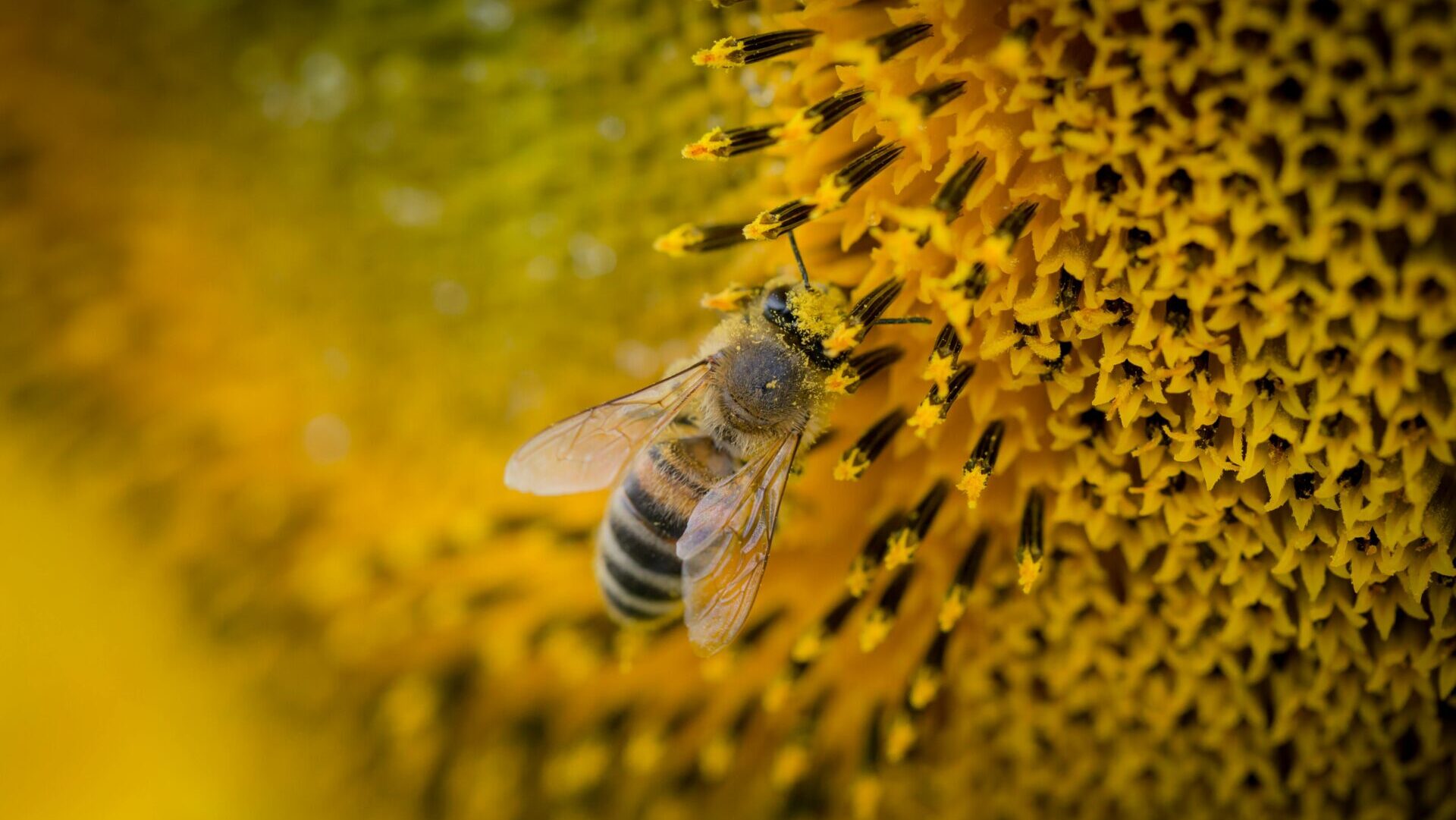The Sweet Elixir: Exploring the Bountiful Benefits of Honey. In natural remedies and wholesome ingredients, few hold as much acclaim and reverence as honey. Revered for its rich taste, golden hue, and myriad health benefits, cultures have cherished honey worldwide for millennia. Beyond its delectable sweetness, honey boasts a treasure trove of nutritional and medicinal properties, making it a staple in kitchens, medicine cabinets, and beauty regimens. Join us on a journey to discover the many virtues of this remarkable substance and unlock the secrets of its timeless allure.
Nutritional Profile
Honey is a complex and multifaceted substance comprising diverse nutrients and bioactive compounds. While its precise composition may vary depending on factors such as floral source and processing methods, honey typically contains carbohydrates (primarily fructose and glucose), vitamins (including B vitamins and vitamin C), minerals (such as potassium, calcium, and magnesium), amino acids, antioxidants, enzymes, and trace elements. This nutritional richness makes honey a delicious natural sweetener and a potent source of nourishment for the body and mind.
In addition to its nutritional richness, honey’s composition includes unique bioactive compounds that contribute to its therapeutic properties. One such compound is hydrogen peroxide, produced by the enzyme glucose oxidase when honey comes into contact with moisture. Hydrogen peroxide exhibits antimicrobial properties, making honey effective against many bacteria, fungi, and other microorganisms. This natural preservative action has been utilized for centuries to prevent food spoilage and promote wound healing.
 Furthermore, honey contains phytochemicals such as flavonoids and phenolic acids, which act as powerful antioxidants in the body. These compounds help protect cells from oxidative damage caused by free radicals, reducing the risk of chronic diseases such as heart disease, cancer, and neurodegenerative disorders. Studies have shown that regular consumption of honey may improve markers of cardiovascular health, including blood pressure, cholesterol levels, and inflammatory markers.
Furthermore, honey contains phytochemicals such as flavonoids and phenolic acids, which act as powerful antioxidants in the body. These compounds help protect cells from oxidative damage caused by free radicals, reducing the risk of chronic diseases such as heart disease, cancer, and neurodegenerative disorders. Studies have shown that regular consumption of honey may improve markers of cardiovascular health, including blood pressure, cholesterol levels, and inflammatory markers.
Moreover, the amino acids present in honey play essential roles in protein synthesis, tissue repair, and neurotransmitter production. These building blocks of protein contribute to muscle growth, immune function, and cognitive health. Honey’s amino acid profile also makes it a valuable energy source for active individuals and athletes, providing a quick and sustained fuel source during exercise and recovery.
In addition to its nutritional and therapeutic properties, honey’s natural sweetness makes it an ideal alternative to refined sugar in culinary applications. Unlike processed sugars, which offer empty calories and contribute to metabolic imbalances, honey provides a more balanced energy release due to its complex carbohydrate profile. This makes honey a suitable sweetener for individuals seeking to manage their blood sugar levels or reduce their intake of added sugars.
Honey’s nutritional profile reflects its status as a holistic superfood, offering a harmonious blend of carbohydrates, vitamins, minerals, antioxidants, enzymes, and bioactive compounds. Whether enjoyed as a natural sweetener, therapeutic remedy, or culinary ingredient, honey captivates and nourishes humanity with its timeless allure and multifaceted benefits for body, mind, and spirit.
Health Benefits of Honey
The health benefits of honey are as diverse as they are impressive, encompassing everything from immune support to wound healing and beyond. Let’s explore some of the most notable advantages:
- Immune Support:
Honey’s antimicrobial properties, attributed partly to its high sugar content and low pH, make it a valuable ally in supporting immune function and combating infections. Regular consumption of honey, particularly raw and unprocessed varieties, may help strengthen the body’s defenses against bacteria, viruses, and other pathogens. - Soothing Sore Throats:
Honey is a time-honored remedy for coughs and sore throats. Its soothing properties relieve irritation and inflammation in the throat. When mixed with warm water or herbal teas, honey forms a soothing elixir to ease discomfort and promote healing. - Digestive Health:
Besides its antimicrobial effects, honey contains prebiotic compounds that nourish beneficial gut bacteria and support digestive health. Consuming honey in moderation may help regulate bowel function, alleviate symptoms of indigestion, and promote a healthy gut microbiome. - Wound Healing:
Honey’s antimicrobial, anti-inflammatory, and humectant properties make it an effective natural remedy for wound healing and skin care. Applied topically, honey forms a protective barrier over wounds, promotes tissue regeneration, and helps prevent infection. Medical-grade honey, such as Manuka honey, is particularly prized for its potent healing properties. - Antioxidant Protection:
Honey is rich in antioxidants such as flavonoids and phenolic compounds. These help neutralize free radicals and reduce oxidative stress in the body. Regular consumption of honey may contribute to long-term health and longevity by protecting against chronic diseases and age-related degeneration. - Energy Boost:
Honey is a concentrated source of carbohydrates that provides a quick and easily digestible energy source. Whether enjoyed as a natural sweetener in beverages and baked goods or consumed straight from the spoon, honey can provide a natural energy boost to fuel your day. - Allergy Relief:
Some proponents suggest that consuming locally sourced honey may help alleviate symptoms of seasonal allergies by exposing the body to small amounts of pollen allergens. While more research is needed to confirm this effect, anecdotal evidence suggests that honey may relieve some allergy sufferers.
Culinary Delights
Beyond its medicinal properties, honey’s versatility in the kitchen makes it a beloved ingredient in many culinary creations. From sweetening teas and baked goods to glazing meats and drizzling over yogurt and fruit, honey adds flavor and complexity to savory and sweet dishes. Experiment with honey varieties with unique flavor profiles and floral notes to discover new taste sensations and culinary possibilities.
Honey’s culinary potential extends far beyond its traditional role as a natural sweetener. Its rich, complex flavor profile can enhance various dishes, adding depth and dimension to sweet and savory recipes. Whether used as a primary ingredient or as a finishing touch, honey brings a touch of sweetness and a hint of floral aroma to every dish it graces.
In baking, honey is a natural sweetener that adds sweetness and contributes to the texture and moisture of baked goods. Its natural humectant properties help retain moisture, resulting in tender, moist cakes, cookies, and breads. Honey’s distinctive flavor pairs beautifully with various ingredients, from warm spices like cinnamon and ginger to tangy citrus fruits and rich dark chocolate.
In savory dishes, honey can balance and complement bold flavors, adding a touch of sweetness to sauces, marinades, and dressings. It can be drizzled over roasted vegetables for a caramelized finish, brushed onto grilled meats for a sticky glaze, or whisked into vinaigrettes for a sweet and tangy dressing.
When used in beverages, honey adds depth and complexity to cocktails, teas, and mocktails. Its natural sweetness can help balance tart or bitter flavors, while its subtle floral notes can enhance a drink’s aromatic profile. The possibilities are endless, from a simple honey-sweetened lemonade to a sophisticated honey-infused whiskey sour.
Beyond its role as a flavor enhancer, honey also boasts nutritional benefits that make it a healthier alternative to refined sugars and artificial sweeteners. Its natural sugars provide a quick energy source, while its antioxidant and antimicrobial properties contribute to overall health and well-being.
Beauty and Wellness
In addition to its culinary and medicinal uses, honey has long been prized for its beauty-enhancing properties. As a natural humectant, honey helps attract and retain moisture in the skin, making it a nourishing ingredient in skincare products such as masks, scrubs, and moisturizers. Honey’s antimicrobial and anti-inflammatory properties also make it an effective treatment for acne, eczema, and other skin conditions.
Furthermore, honey’s gentle exfoliating action helps remove dead skin cells and promote cell turnover, resulting in smoother, more radiant skin. Its natural antibacterial properties can help cleanse pores and prevent breakouts, while its anti-inflammatory effects soothe irritation and redness. Honey’s antioxidant content also helps protect the skin from environmental damage and premature aging, reducing the appearance of fine lines, wrinkles, and age spots.
In addition to its benefits for the skin, honey can promote hair health and shine. When used as a hair mask or conditioner, honey helps moisturize and nourish the hair follicles, reducing frizz and breakage. Its antimicrobial properties can help maintain scalp health and prevent dandruff and other conditions.
Beyond its physical benefits, honey’s sweet aroma and luxurious texture can promote relaxation and stress relief when used in aromatherapy and spa treatments. Its natural sweetness can uplift the senses and evoke comfort and indulgence, making it a popular ingredient in bath products, candles, and massage oils.
Honey’s beauty-enhancing properties make it a versatile and effective addition to any beauty and wellness routine. Whether applied topically to the skin and hair or enjoyed internally for its holistic health benefits, honey captivates and inspires individuals seeking natural solutions for radiant beauty and well-being.
Conclusion
In conclusion, honey is a testament to nature’s abundant generosity, offering its delightful sweetness, health-enhancing properties, and culinary possibilities. With its complex nutritional profile boasting vitamins, minerals, antioxidants, and more, honey is a powerhouse of nourishment for both body and mind. From soothing sore throats and boosting immunity to providing hydration and promoting skin health, its medicinal benefits are as diverse as they are impressive.
Moreover, honey’s versatility extends far beyond health and wellness. Its enchanting flavor and aromatic essence lend themselves beautifully to various culinary creations, from decadent desserts to savory glazes and marinades. By exploring honey’s myriad varieties and flavor profiles, one can embark on a culinary journey rich in taste sensations and gastronomic delights.
But perhaps most importantly, honey serves as a poignant reminder of humanity’s deep-rooted connection to the natural world. For centuries, cultures around the globe have revered honey as a sacred gift from the earth, symbolizing vitality, healing, and harmony. As we continue to navigate the complexities of modern life, the timeless wisdom of honey reminds us to embrace the simplicity and purity of nature’s bounty.
So, the next time you savor a spoonful of honey or incorporate it into your favorite recipe, take a moment to appreciate its exquisite flavor and the profound depth of its origins. In honey, we find sustenance for the body and nourishment for the soul—a sweet reminder of the inherent beauty and abundance.





